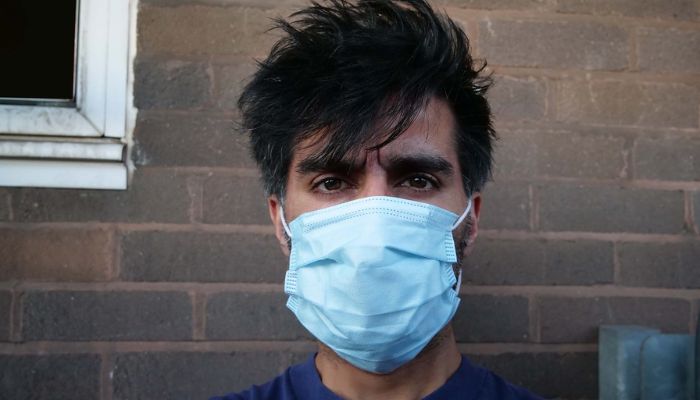[ad_1]
British researchers announced, on Friday, that they had treated a man who had been infected with the Corona virus continuously for 411 days by analyzing the genetic code of his own virus to find the appropriate treatment.
Ongoing COVID infection – which is different from Long COVID or frequent bouts of the disease – it occurs in a small number of patients with an already weakened immune system.
These patients can test positive for months “It gurgles all the time,” said Luke Snell, a doctor who specializes in infectious diseases at Guy’s and St Thomas’ NHS Trust, or even years with the infection.
Infection can be a serious threat, Snell said, because about half of patients also have persistent symptoms such as pneumonia. France Press agencyadding that much is still unknown about the condition.
In a new study published in the journal Clinical infectious diseasesA team of researchers at Guy’s & St Thomas’ NHS Trust and King’s College London describe how a 59-year-old man finally beat his infection after more than 13 months.
The man, who has a compromised immune system due to a kidney transplant, contracted COVID in December 2020 and tested positive until January of this year.
To find out if he had contracted COVID multiple times or if it was a single, persistent infection, the researchers used a rapid genetic analysis using nanohole sequencing technology.
The test, which can provide results in as little as 24 hours, showed the man had an early B.1 variant that was dominant in late 2020 but has since been replaced by newer strains.
Because he had this early variant, the researchers gave him a combination of Regeneron’s monoclonal antibodies.
Like most other antibody therapies, the treatment is no longer widely used because it is not effective against newer variants such as Omicron.
But it was successful in treating the man because he was fighting a different type from a previous stage of the epidemic.
Treatment resistance
“The very new variants that are now circulating are resistant to all the antibodies that are available in the UK, EU and now even the US,” Snell said.
Researchers used several of these therapies to try to save a 60-year-old man who fell seriously ill in August of this year and had been infected since April.
However, none of them succeeded.
“We really thought he was going to die,” Snell said.
So the team crushed two antiviral therapies that had not been used together before — paxlovid and remdesivir — and gave them to an unconscious patient via a nasal tube, according to a non-peer-reviewed preprint study on ResearchSquare.
“It has miraculously explained and perhaps this is the way now for how we deal with this very difficult persistent infection,” Snell said, stressing that this treatment may not translate for normal COVID cases.
At the ECCMID conference in April, the team announced the longest known persistent infection in a man who tested positive for 505 days before his death.
This “very sad case” came earlier in the pandemic, Snell said, adding that he’s grateful there are so many treatment options available now.
[ad_2]
Source link

